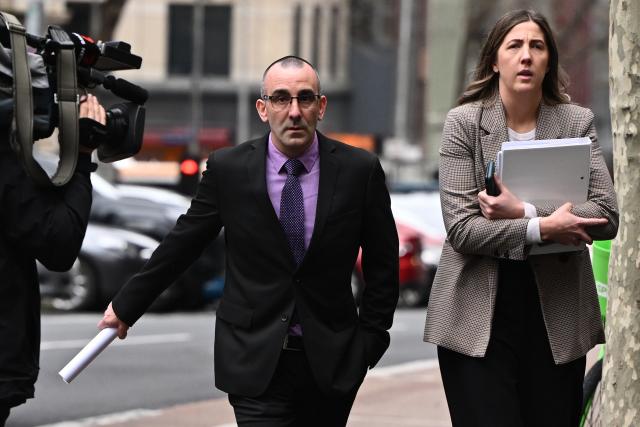As a 17-year-old boy Jason Roberts came under the sinister influence of hardened crook Bandali Debs.
There was a cult-like personality around Debs who seemed to have some way of exercising adverse influence over young adolescents in his family circle, Victorian Supreme Court Justice Stephen Kaye said on Monday.
Roberts, who was dating Debs’ daughter Nicole, wasn’t the first teen boy Debs had recruited to assist in a series of armed robberies.
But he was the last. While staking out a series of potential targets for the pair of robbers, Sergeant Gary Silk and Senior Constable Rodney Miller were murdered in Moorabbin in 1998.
Debs was jailed for life. Roberts was jailed for a minimum of 35 years until his conviction was overturned and he was acquitted in a retrial.
During that trial, Roberts pleaded guilty to 10 armed robberies committed with Debs in the lead-up to the murders.
He was sentenced on Monday to six years and six months behind bars. With almost 22 years – 8001 days – of time served for the murders he was acquitted of, Roberts will not return to prison.
“I would accept if you had not come under Debs’ sinister influence you would not have become involved in this offending,” Justice Kaye said.
But on the other hand, Roberts had quite frankly conceded he was a willing participant in the crimes, Justice Kaye said.
Still, Roberts was very much under the toxic influence of Bandali Debs, he said.
Debs seemed to have a methodology of recruiting young teenagers to assist him to commit serious and violent armed robberies.
The crimes involved Roberts and Debs pointing loaded weapons at customers and staff in restaurants, forcing them to lie face down and to have their hands and feet bound.
Jewellery and other personal possessions were taken, as well as restaurants’ hard-earned takings.
Victims’ lives had been significantly and profoundly adversely affected, Justice Kaye said.
He found Roberts was remorseful for his actions and had been deeply affected by the more than two decades he spent in prison.
Roberts is suffering anxiety and major depression. He leaves his home only when absolutely necessary and only with a close relative.
He has limited capacity for employment or any other activity, Justice Kaye said.
Time in prison, including in protection for his own safety, had a substantial detrimental effect on his psychological wellbeing, the court heard.
But his prospects for rehabilitation are good.
Roberts, who had been on bail pending sentencing, is now free.







